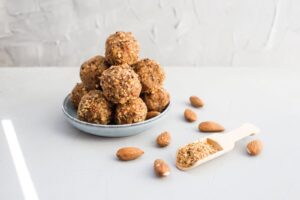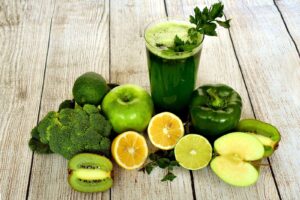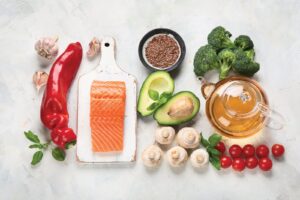Rules, rules, rules. People are confused about what to eat. There is a lot of information about healthy eating available on-line and in books. Unfortunately, much of it is conflicting. It is difficult for the average person to figure out which sources are most reliable.
There are a couple of successful and reliable books published with the title Food Rules. Food Rules, by Catherine Shanahan, provides a guide to healthy eating with a real food, Paleo-diet slant. Shanahan gives a lot of great advice, but there are 97 rules related to food and another 20 related to general health and lifestyle. This is likely to be overwhelming for most people.
Food Rules by Michael Pollan is another reliable resource. Pollan is a journalist who has written a number of popular books and articles on food and eating. His most famous quote about healthy nutrition is “Eat food. Not too much. Mostly plants.” While this is a good general guide for almost everyone, the book Food Rules then gives 64 principles for healthy eating. This, again, may be too many rules to consider.
After studying health and nutrition for the past twelve years and working with numerous clients, I have developed my own food rules. I share these with clients as the starting basis for their own healthy eating. I have made 7 rules, not 64 or 97. If God gave only 10 commandments, who am I come up with more?
- Eat Real Food
- Our grandparents’ generation would not have distinguished between “food” and “real food.” Unfortunately, we have to do this today because 68% of what Americans eat is ultra-processed food. Real food is fresh or frozen food with one or two ingredients. Everything in the produce section of the grocery store is real food. Packaged or canned foods that are minimally processed are also real foods. Some examples of these include plain whole-milk yogurt, canned beans or tomatoes, rice, and nut butters without added sugar. Read more about what to eat and why in the article on my website entitled Just Eat Real Food.
- Eat Lots of Plants
- There have been numerous studies about the benefits of eating a lot of vegetables. The article on my site Eat Five or More Vegetables a Day discusses some of those. Whole fruit, beans, legumes, grains, nuts and seeds are also beneficial plant foods. Eat as many different kinds of plant foods as you can and rotate them to get the best variety of micronutrients and fiber.
- Limit Added Sugars
- Sugar, no matter what the name, is an inflammatory food. Historically, added sugars, whether cane sugar, maple syrup, or honey, were only available in small quantities and were very expensive. In 1860 Americans were eating a little over 20 pounds of sugar per person per year. Now we consume an average of almost 120 pounds! The American Heart Association recommends that you limit daily intake to 6 teaspoons per day for women. The amount for men is only 9 teaspoons.
- Eat (Some) Animal Protein
- Protein is a required macronutrient. Humans need to eat a minimum of about 0.8 grams per kilogram of body weight to get the amino acids we need for good health. Many people need more than this amount on a daily basis. While protein can be obtained from many plant sources, there are some nutrients, such as vitamin B12, zinc and omega-3 fats, that are most readily available in animal sources. Animal products also provide the amino acids in the best ratio for us. I encourage my nutrition clients to eat at least some animal protein on a regular basis. The best sources are pasture-raised and organic meats and eggs or wild-caught seafood and game.
- Use Traditional Fats
- Dietary fat, especially the saturated kind, was demonized for a number of years because it was thought to lead to heart disease. Scientific studies have confirmed that consuming excess processed carbohydrates, such as sugar and white flour, are far greater contributors to poor health than most fats. Certain fats, such as trans fats and refined oils like corn, soy, canola, and margarine, are inflammatory. On the other hand, traditional fats, such as extra-virgin olive oil, avocado oil, virgin coconut oil, ghee, and organic butter, are healthy and can be used for cooking. Nut and seed oils like flax, macadamia, and walnut are also excellent oils for use on salads.
- Purchase and Eat Organic Food as Budget Allows
- Organic food is more expensive than conventional, and it is often not easy to decide whether it is worth the cost difference. Each family has to determine its own budget priorities, so I am not dogmatic about how much to buy. Why Buy Organic Produce on my website gives some guidance about the benefits of purchasing organic versions of at least some of your fresh produce. There are many chemicals, including GMOs, that are by law not allowed in organic foods. Regularly consuming organic meats, eggs, produce, and grains reduces the chemical load on our bodies, and so is to be encouraged. Organic chips and cookies are still junk food and should be eaten only as occasional treats.
- Eat Traditional Foods such as Bone Broth and Fermented Foods
- Fermented foods and drinks contain probiotics, which are good bacteria. These are excellent for our digestive system and overall immune health. Bone broth is very soothing to your intestinal tract and also serves as a great soup base. Try to consume a small amount of a variety of fermented foods and some bone broth on a daily basis to strengthen your gut health.
To learn more details about any rule, check out my website at GingerHudock.com. If you follow Ginger’s Food Rules, you will be well on your way to your best possible health.
For personalized help with determining the best foods for you, contact me through my website to set up a complimentary 20-minute telephone consultation.
 Ginger Hudock’s eclectic background includes degrees in vocal performance, finance and nutrition. She worked as the Vice Chancellor for Business and Finance at USC Aiken for 25 years before beginning her nutrition career. Her writing has appeared online at TheMighty.com, in addition to a monthly nutrition column for Aiken’s Bella Magazine. You can read more of Ginger’s articles about food, nutrition, faith and personal finance at her blog www.GingerHudock.com.
Ginger Hudock’s eclectic background includes degrees in vocal performance, finance and nutrition. She worked as the Vice Chancellor for Business and Finance at USC Aiken for 25 years before beginning her nutrition career. Her writing has appeared online at TheMighty.com, in addition to a monthly nutrition column for Aiken’s Bella Magazine. You can read more of Ginger’s articles about food, nutrition, faith and personal finance at her blog www.GingerHudock.com.
























